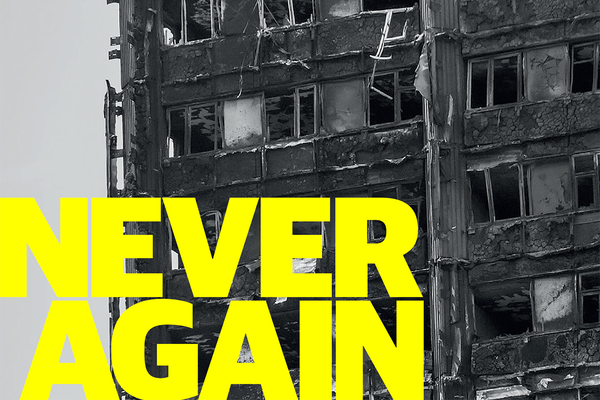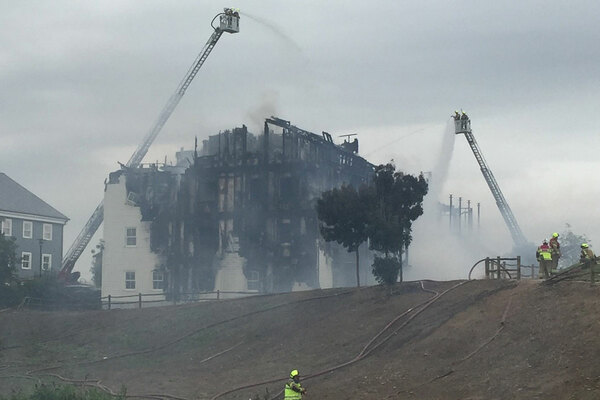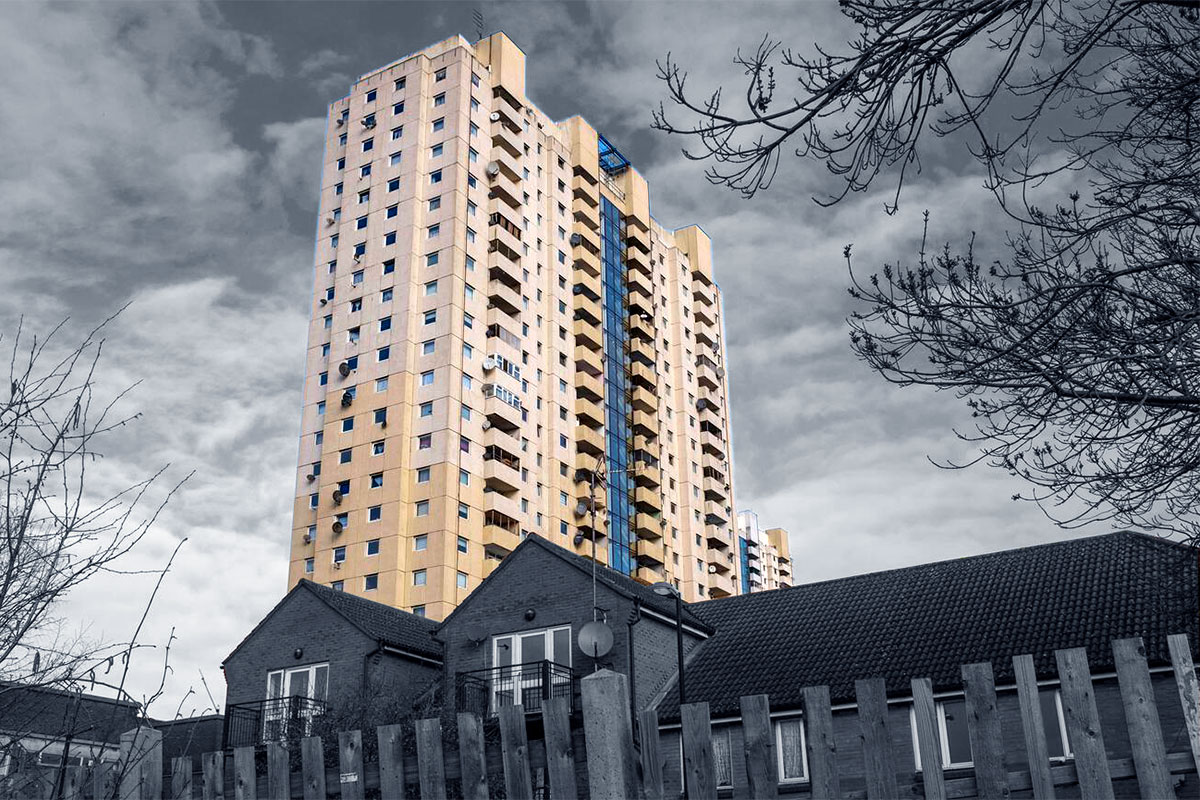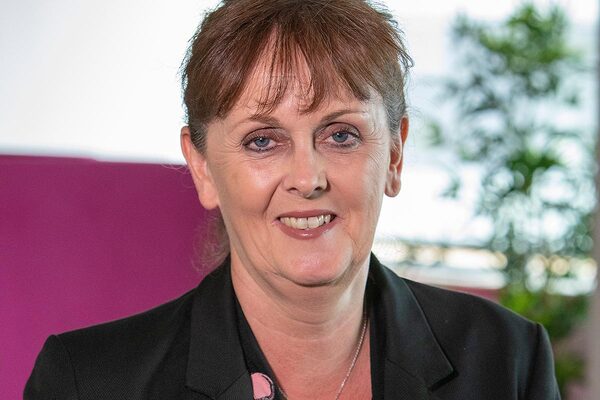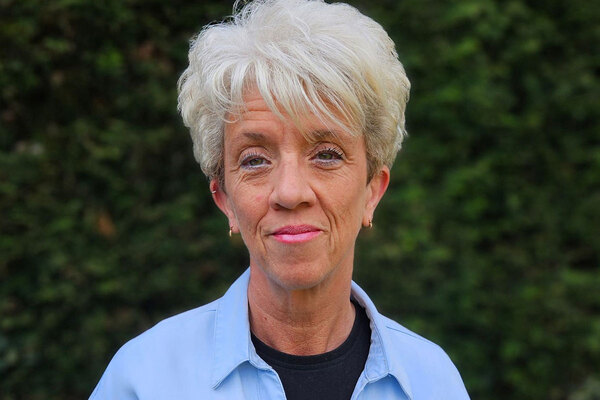You are viewing 1 of your 1 free articles
Australian committee calls for outright ban on Grenfell-style cladding
An Australian government committee has recommended an immediate, total ban on the style of aluminium cladding used on Grenfell Tower.
The Australian government has been investigating dangerous building materials since a huge blaze at the Lacrosse Tower in Melbourne in 2014, which was clad in aluminium composite panels.
Following the Grenfell Tower disaster in London in June where at least 80 people died, the inquiry agreed to produce an interim report as a matter of urgency.
The report, published today, said the import, sale and use of polyethylene cored aluminium composite panels – the type used on Grenfell and the Lacrosse Tower – should be banned “as a matter of urgency”.
“In light of the Grenfell Tower fire tragedy, the committee does not consider there to be any legitimate use of [polyethylene] core [aluminium composite panels] on any building type,” the report said.
“The committee believes that as there are safe non-flammable and fire retardant alternatives available, there is no place for [polyethylene aluminium composite panels] in the Australian market.”
Previous investigations into the Lacrosse Tower fire had determined the dangers associated with aluminium composite cladding with a polyethylene core.
Tests of the cladding material, released publicly in February 2016, showed it was so flammable the test had to be abandoned after 93 seconds due to the height of the flames. As a result it was deemed non-compliant with building regulations for buildings higher than three storeys.
This was 16 months before the Grenfell disaster and three months before the refurbishment of the tower, which installed the cladding, completed.
The Australian Senate Committee also recommended a national licensing scheme for building professionals to ensure they could operate within the “industry’s complex regulatory environment”.
It added: “Current building regulations appear inadequate and are too easily evaded, largely due to existing deemed-to-satisfy and performance-based pathways.”
The report said polyethylene cladding is used commonly across buildings in Australia, much of it imported from overseas.
It added: “Considering the prevalence of polyethylene core cladding across Australia, the committee considers it paramount that all governments focus attention on this issue before the next disaster occurs.”
The fire at the Lacrosse Tower was started by a cigarette on the eight floor and spread two floors down and up over 23 floors to the top of the building in just 11 minutes. There were no deaths or major injuries.
Never Again campaign
In the days following the Grenfell Tower fire on 14 June 2017, Inside Housing launched the Never Again campaign to call for immediate action to implement the learning from the Lakanal House fire, and a commitment to act – without delay – on learning from the Grenfell Tower tragedy as it becomes available.
One year on, we have extended the campaign asks in the light of information that has emerged since.
Here are our updated asks:
GOVERNMENT
- Act on the recommendations from Dame Judith Hackitt’s review of building regulations to tower blocks of 18m and higher. Commit to producing a timetable for implementation by autumn 2018, setting out how recommendations that don’t require legislative change can be taken forward without delay
- Follow through on commitments to fully ban combustible materials on high-rise buildings
- Unequivocally ban desktop studies
- Review recommendations and advice given to ministers after the Lakanal House fire and implement necessary changes
- Publish details of all tower blocks with dangerous cladding, insulation and/or external panels and commit to a timeline for remedial works. Provide necessary guidance to landlords to ensure that removal work can begin on all affected private and social residential blocks by the end of 2018. Complete quarterly follow-up checks to ensure that remedial work is completed to the required standard. Checks should not cease until all work is completed.
- Stand by the prime minister’s commitment to fully fund the removal of dangerous cladding
- Fund the retrofitting of sprinkler systems in all tower blocks across the UK (except where there are specific structural reasons not to do so)
- Explore options for requiring remedial works on affected private sector residential tower blocks
LOCAL GOVERNMENT
- Take immediate action to identify privately owned residential tower blocks so that cladding and external panels can be checked
LANDLORDS
- Publish details of the combinations of insulations and cladding materials for all high rise blocks
- Commit to ensuring that removal work begins on all blocks with dangerous materials by the end of 2018 upon receipt of guidance from government
- Publish current fire risk assessments for all high rise blocks (the Information Commissioner has required councils to publish and recommended that housing associations should do the same). Work with peers to share learning from assessments and improve and clarify the risk assessment model.
- Commit to renewing assessments annually and after major repair or cladding work is carried out. Ensure assessments consider the external features of blocks. Always use an appropriate, qualified expert to conduct assessments.
- Review and update evacuation policies and ‘stay put’ advice in the light of risk assessments, and communicate clearly to residents
- Adopt Dame Judith Hackitt’s recommended approach for listening to and addressing tenants’ concerns, with immediate effect
CURRENT SIGNATORIES:
- Chartered Institute of Housing
- G15
- National Federation of ALMOs
- National Housing Federation
- Placeshapers



